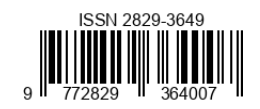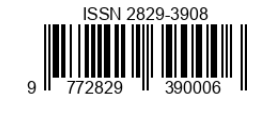The Dark Side of AI in Indonesian Education: Understanding Its Impact on the Alpha Generation in the Era of Technological Development
DOI:
https://doi.org/10.56910/literacy.v4i1.2096Keywords:
AI Technology, Bad Impact of AI, Dark Side of AI, Education, Generation AlphaAbstract
This research was conducted to examine AI technology in education and its impact on Generation Alpha in the era of technological development. Education is the fundamental basis for shaping the character of the nation's generation, and with quality education supported by adequate facilities, the learning process will become more innovative. The presence of AI technology facilitates educational activities, from administration, data collection, to the creation of supporting learning media. In addition, children can learn more easily through any site, thus increasing interest in learning at school. However, AI does not only provide positive aspects, it turns out that various problems have been found for Gen Alpha towards AI, even to the point of addiction to using AI. So the impact on Gen Alpha is the emergence of immoral behavior, cultural changes due to imitating western cultural styles, and impolite attitudes and behaviors due to the influence of content on Tik Tok, Youtube and others. The next effect is a decrease in critical thinking skills due to dependence on finding instant answers through ChatGPT or AI. This is a challenge from the dark side of AI and at the same time a positive side in the progress of technological developments in the field of education. This research method uses a qualitative research approach with a focus on analysis and descriptive data obtained from various relevant sources, through a survey to one of the schools, and information from one of the subject teachers. Other sources used as references in this study mainly focus on journals as the main reference source, supported by news and books. The conclusion obtained from this study is that technology is important to use in the world of education, but there needs to be limitations given by teachers or schools to prevent children from accessing things outside of learning. In addition, teachers must be able to adapt to existing developments to be able to guide and direct their students to utilize AI technology as part of learning equipped with religious values in order to filter various cultural influences that enter without limits
References
[1] Apandi, S., Lumbantoruan, A. T., Fikanti, M., Nazawa, K., & Utami, S. (2025). Pengaruh Teknologi Digital Terhadap Kebiasaan Dan Pola Perkembangan Generasi Alpha. 07(02), 9471–9480.
[2] Bayuseto, A., Yaasin, A., & Riyan, A. (2023). Upaya Menanggulangi Dampak Negatif Globalisasi Terhadap Generasi Muda di Indonesia. Integritas Terbuka: Peace and Interfaith Studies, 2(1), 59–68. https://doi.org/10.59029/int.v2i1.10
[3] Damayanti, I. R., Subiakto, V. U., & Sendrian, R. (2024). Meningkatkan Pendidikan Literasi Digital Media Sosial Pada Gen Alpha. ABDI MOESTOPO: Jurnal Pengabdian Pada Masyarakat, 7(2), 175–182. https://doi.org/10.32509/abdimoestopo.v7i2.3893
[4] Gunawan, R., Billah, M. Z., Silalahi, R., & Tuka, H. (2024). Gaya Belajar Gen Alpha di Era Digital. 3.
[5] Jafar, M., Asfar, A. M. I. T., & Asfar, A. M. I. A. (2024). Artificial Intellegence Dalam Pendidikan Dan Penelitian: Tantangan Dan Solusi Menghadapinya. Simposium Nasional Kepemimpinan Perguruan Tinggi Indonesia, 1(2017), 1–9.
[6] Łodzikowski, K., Foltz, P. W., & Behrens, J. T. (2023). Generative AI and Its Educational Implications. https://doi.org/10.1007/978-3-031-64487-0_2
[7] M. Sobry, & Prosmala Hadisaputra, M. P. . (2020). Penelitian kualitatif Penelitian kualitatif. In Bandung: PT. Remaja Rosda Karya (Issue c). http://www.academia.edu/download/54257684/Tabrani._ZA_2014-Dasar-dasar_Metodologi_Penelitian_Kualitatif.pdf
[8] Madrasah, M. S. (2024). jurnal creativity Adaption-Innovation.pdf. 1(1), 157–168.
[9] Mardani, Adeliya Puspita, and Aida Azizah. "Konsep belajar menurut teori sosial kognitif oleh albert bandura." (2021).
[10] Nasir, R. (2024). Tantangan Penetrasi Teknologi Informasi dan Komunikasi dalam Mendidik Generasi Alpha. Bincang Sains Dan Teknologi, 3(02), 44–51. https://doi.org/10.56741/bst.v3i02.585
[11] Oktaviasary, A. (2024). Gempuran Budaya Modern terhadap Budaya Lokal Generasi Alpha : Tinjauan Literatur Review. 10(4), 4330–4337.
[12] Ray, P. P. (2023). ChatGPT: A comprehensive review on background, applications, key challenges, bias, ethics, limitations and future scope. Internet of Things and Cyber-Physical Systems, 3(March), 121–154. https://doi.org/10.1016/j.iotcps.2023.04.003
[13] Rifky, S. (2024). Dampak Penggunaan Artificial Intelligence Bagi Pendidikan Tinggi. Indonesian Journal of Multidisciplinary on Social and Technology, 2(1), 37–42. https://doi.org/10.31004/ijmst.v2i1.287
[14] Suariqi Diantama. (2023). Pemanfaatan Artificial Intelegent (AI) Dalam Dunia Pendidikan. DEWANTECH Jurnal Teknologi Pendidikan, 1(1), 8–14. https://doi.org/10.61434/dewantech.v1i1.8
[15] Sugihyono, Sugihyono. "Leadership in Biblical Teachings in a Multicultural Society Through Christian Religious Education." International Journal of Education and Literature 4.1 (2025): 69-74.
[16] Sugihyono. (2025) Mengatasi Ketimpangan: Pembelajaran dari Praktik Global untuk Pendidikan di Wilayah Terpencil Indonesia. Jurnal on Education, vol 7 No 2 11977-11987 https://doi.org/10.31004/joe.v7i2.8317
[17] Sugihyono. (2025). Mendidik Generasi Z dan Alpha dan Relefansinya dengan Pendidikan yang Alkitabiah, Banjar-Kalimantan Selatan. Ruang Karya. hal 8 https://book.ruangkarya.id/views/shop-single.php?id=dc73b5f2-f34a-11ef-9466-69b350433ed3
[18] Sugiyono, D. (2013). Metode penelitian pendidikan pendekatan kuantitatif, kualitatif dan R&D.
[20] Sumarni, R., Dewi, D. A., & Adriansyah, M. I. (2024). Urgensi Pendidikan Kewarganegaraan pada Generasi Alpha sebagai Bentuk Ketahanan Diri dalam Mengahadapi Arus Globalisasi. MARAS: Jurnal Penelitian Multidisiplin, 2(1), 7–15. https://doi.org/10.60126/maras.v2i1.111
[21] Suryanto, I. W., Astuti, N. M. E. O., Prastyandhari, I. G. A. I. M., Pd, S., & Sentosa, I. P. P. (2024). Buku Referensi Peran Ganda Guru: Sebagai Pendidik Dan Orang Tua Di Era Digital. Uwais Inspirasi Indonesia
[22] Vieriu, A. M., & Petrea, G. (2025). The Impact of Artificial Intelligence (AI) on Students’ Academic Development. Education Sciences, 15(3), 1–12. https://doi.org/10.3390/educsci15030343
[23] Wahyudi, I., & Mahaswa, R. K. (2020). Metafisika Mediasi Teknologis: Kritik Atas Filsafat Teknologi Klasik. Jurnal Filsafat, 30(2), 202-235.
[24] Westera, W., Prada, R., Mascarenhas, S., Santos, P. A., Dias, J., Guimarães, M., Georgiadis, K., Nyamsuren, E., Bahreini, K., Yumak, Z., Christyowidiasmoro, C., Dascalu, M., Gutu-Robu, G., & Ruseti, S. (2020). Artificial intelligence moving serious gaming: Presenting reusable game AI components. Education and Information Technologies, 25(1), 351–380. https://doi.org/10.1007/s10639-019-09968-2
[25] Widodo, Y. B., Sibuea, S., & Narji, M. (2024). Kecerdasan Buatan dalam Pendidikan: Meningkatkan Pembelajaran Personalisasi. Jurnal Teknologi Informatika dan Komputer, 10(2), 602-615.
[26] Wilmers, N. (2024). Generative AI and the Future of Inequality. An MIT Exploration of Generative AI, July. https://doi.org/10.21428/e4baedd9.777b7123
[27] Xia, Q., Chiu, T. K. F., Lee, M., Sanusi, I. T., Dai, Y., & Chai, C. S. (2022). A self-determination theory (SDT) design approach for inclusive and diverse artificial intelligence (AI) education. Computers and Education, 189, 1–41. https://doi.org/10.1016/j.compedu.2022.104582
Downloads
Published
How to Cite
Issue
Section
License
Copyright (c) 2025 LITERACY : International Scientific Journals of Social, Education, Humanities

This work is licensed under a Creative Commons Attribution-ShareAlike 4.0 International License.







